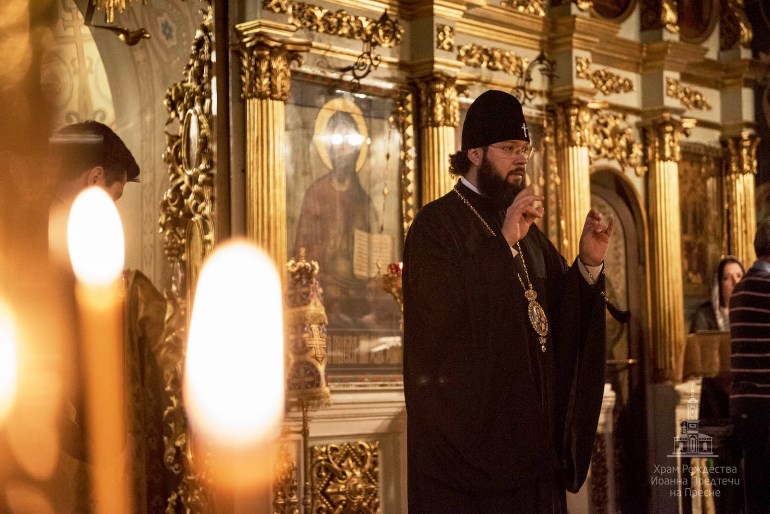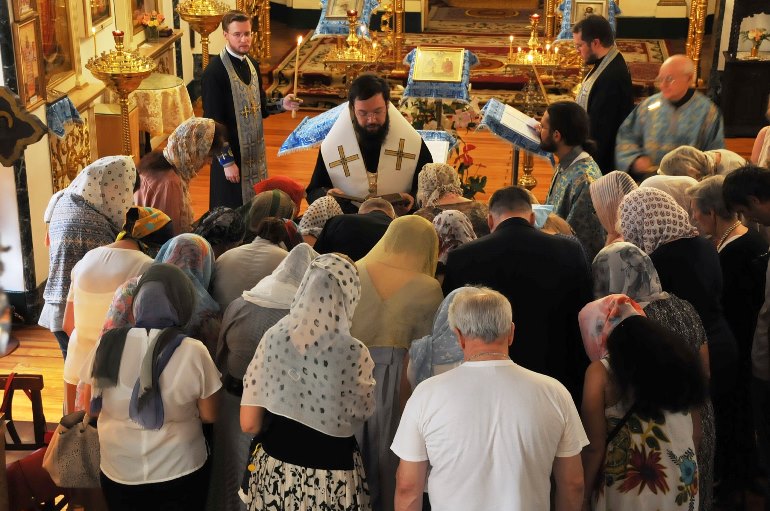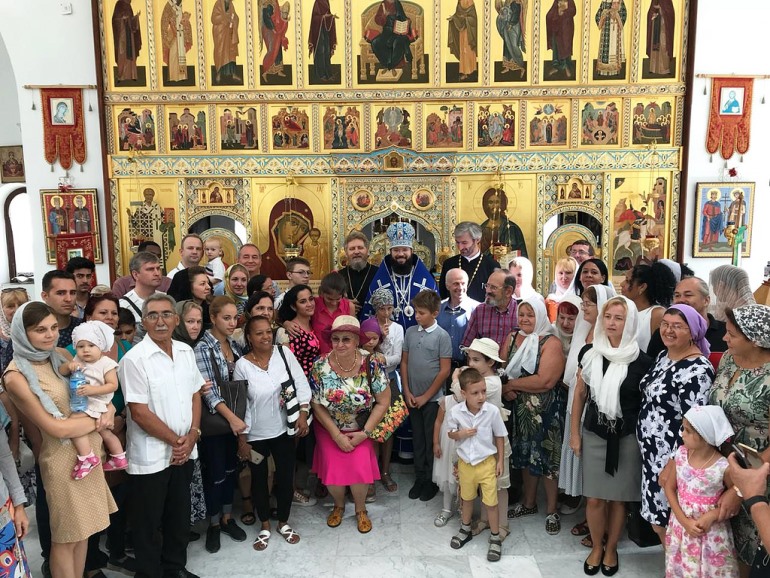Yuliya Goryacheva
Archbishop Antony of Vienna and Budapest shared in his interview to the Russkiy Mir about activities of the Moscow Patriarchate Office for Institutions Abroad and how parishes of Russian Orthodox Church assist compatriots abroad to preserve their language and culture.
– The Moscow Patriarchate Office for Institutions Abroad, which is led by you, has a very impressive range of powers: they include canonical, archpastoral, administrative, financial, and economic care of institutions of the Russian Orthodox Church abroad. And what is the geographic coverage – how many countries are there that have parishes of the ROC?
– Our Office was established in 2009 by the resolution of His Holiness the Patriarch Kirill of Moscow and All Russia and Holy Synod of the Russian Orthodox Church. Before that current management tasks had been taken care of by the Secretariat, which was a part of the Moscow Patriarchate Department for External Church Relations. Assignment of management to an independent entity has been particularly caused by increasing scope of work related to institutions of the Russian Orthodox Church abroad.
Archbishop Antony of Vienna and Budapest. Photo credit: Flickr / Nativity of St John the Baptist Temple in Presnya
The Moscow Patriarchate is represented beyond its canonical territory - in nearly 70 countries. Each of such countries has its parishes and communities, and sometimes even eparchies. Our Office is responsible for personnel, legal and financial assistance in their activities.
– How do parishes abroad form? How many people shall be there to establish a community?
– Your question does not have any common or all round answer. Some of our parishes abroad have rich history and were established, for instance, before the revolution. And there are those that are rather new. Some communities are large, others are not that much. There are no particular patters.
Establishment of a parish requires many concurrent issues to be resolved. Where will the community hold its meetings? Who will give guidance to it? How will the parish activities be conducted subjects to settings of certain country? However, presence of congregation is the most critical condition for a parish to exist. No parish can be established “just to check the box.” It comes to existence because it is needed, because people require it.
– In your opinion, what role do parishes of the Russian Orthodox Church have in preservation of Russian language, connection to Russian culture abroad?
– The temple is primarily the place where people come to pray, worship, receive spiritual guidance and support through communication with a priest. But talking of an overseas parish life, there is another very important element, which is sometimes not so obvious, for example, at our homeland.
In the Saint Nicolas Church in Rome. Photo credit: Flickr / Nativity of St John the Baptist Temple in Presnya
When our compatriots stay abroad for a long time, they are always detached from their families and friends, their home grounds and cultural context they are accustomed to. Our believers spend most of their time within foreign culture environment; they speak foreign language. At times, when you are in a foreign land, a temple becomes the only place to meet each other, communicate in your mother’s tongue, as well as to share experience in resolving common problems. This reason alone is sufficient to say that our parishes have important role in preservation of Russian language abroad.
In this regard I would like to say a few words about my personal experience in ministering abroad. For five years I was an archpriest of a big parish in Rome – the Temple of Saint Katerina the Martyr (Chiesa di Santa Caterina Martire) in Rome. Congregation of this temple includes many children; most of them were born in mixed families, where usually the mother is Russian, and the father is Italian. A child born to such family is bilingual from an early age – both language, Russian and Italian, are his/her mother tongues. It was heartening to see that most of parents wanted to cultivate in their child, who lived in Italy and socialized with his/her Italian peers, the consciousness of belonging to Russian culture, one of the most important elements of which is the language.
In the parish Saturday school in Rome - it so happened that classes are held on Saturdays - the Russian language is taught by Irina Selivanova, the honored teacher of the Russian Federation, a specialist in Russian philology. Our young congregation loves her lessons very much. Being a believer, she makes an education program in such a way that the classes also include a religious component. Therefore, children, attending school, can simultaneously comprehend the basics of Orthodoxy and learn their mother tongue.
Today there are Sunday schools at nearly all parishes abroad. And almost all of these schools teach Russian language. In such a way our young congregation is enabled to learn the basics of their faith, as well as to remember their origins.
Episcopal celebration of the divine liturgy in Havana. Photo credit: Flickr / Nativity of St John the Baptist Temple in Presnya
– Do clergymen and laymen of Russian émigré communities have much concern about preservation of cultural heritage of the Russian civilization, academic and moral education of children?
– This topic is extremely important, for foreign countries as well, and there it may be experienced today in particularly acute way. As a person who spent several years of his life in Western Europe, I must say that moral values in society life today are exposed to blatant devaluation. Even in such traditional Christian countries as Italy. Needless to say, our Church and the Catholic Church, to which most Christians in Europe belong, make a lot of efforts to protect Christian understanding of such important topics as family and marriage, love for a neighbor, freedom and personal responsibility.










